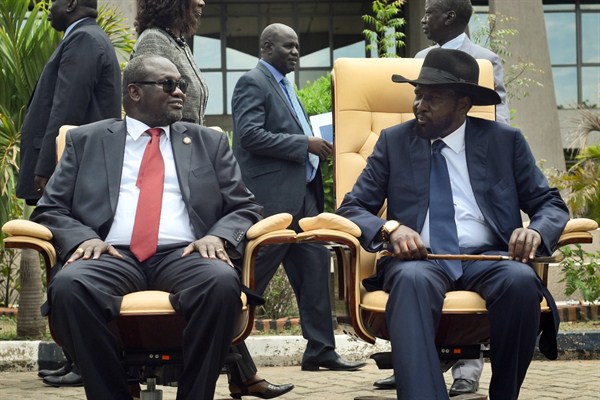South Sudan’s original political odd couple is back together again. In late April, President Salva Kiir watched over the swearing in of his very recent rival and enemy, Riek Machar, as first vice president before declaring that the ceremony marked “the end of the war and the return of peace and stability to South Sudan.”
Is Kiir right? While the homecoming for Machar, the vice president-turned-rebel leader, is a crucial initial step in returning peace to South Sudan, it is only that. And it would be dangerous to reduce the peace process to simply the state of the relationship between the two leaders.
South Sudan’s civil conflict began in December 2013, when a firefight broke out in a military barracks outside the capital, Juba, between rival forces aligned with Kiir and Machar. This came just months after Kiir removed Machar from the vice presidency. In the days that followed the clash, as troops from Machar’s ethnic group, the Nuer, fled the city, forces loyal to Kiir began what the United Nations Mission in South Sudan described as “targeted killings of civilians of Nuer origin following house-to-house searches.” Within days, the fighting had spread to the country’s northeast, and Machar had declared himself officially in rebellion.

